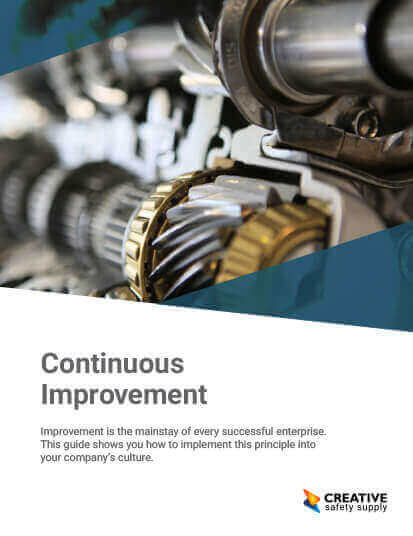
In the pursuit of organizational excellence, businesses are increasingly turning to Continuous Improvement methodologies to drive efficiency, enhance processes, and foster innovation. These structured approaches, typically overseen by a Continuous Improvement Engineer or Manager, provide a systematic framework for identifying opportunities, implementing changes, and achieving incremental advancements. Let's delve into the world of Continuous Improvement methodologies and explore how they contribute to organizational success.
Defining Continuous Improvement Methodologies
Continuous Improvement methodologies are systematic approaches that guide organizations in their efforts to enhance processes, products, and services. These methodologies provide a structured framework for identifying inefficiencies, analyzing root causes, and implementing sustainable improvements. By embracing these methodologies, organizations create a culture of continuous learning and growth.
Key Continuous Improvement Methodologies
- Six Sigma: Six Sigma focuses on minimizing defects and variations in processes. It employs data-driven methodologies and statistical analysis to identify and eliminate sources of error, resulting in improved quality and reduced waste.
- Lean: Lean methodology aims to optimize processes by eliminating waste, such as excess inventory, overproduction, and unnecessary waiting times. It emphasizes value stream mapping to streamline processes and enhance efficiency.
- Kaizen: Kaizen, which translates to "continuous improvement" in Japanese, emphasizes small, incremental changes that collectively lead to significant improvements over time. It involves employees at all levels in identifying and implementing improvements.
- Total Quality Management (TQM): TQM focuses on involving all employees in continuous improvement efforts. It emphasizes customer satisfaction, employee involvement, and data-driven decision-making to enhance overall quality.
- PDCA Cycle: The Plan-Do-Check-Act (PDCA) cycle is a continuous improvement methodology that emphasizes iterative problem-solving. It involves planning, implementing, evaluating results, and taking action to refine processes.
- Agile: While widely used in software development, Agile principles have found application in various industries. Agile emphasizes flexibility, collaboration, and iterative development to respond effectively to changing requirements.
Benefits of Continuous Improvement Methodologies
- Enhanced Efficiency: These methodologies streamline processes, reducing inefficiencies and enhancing productivity.
- Waste Reduction: By targeting waste and non-value-added activities, organizations can minimize costs and resource utilization.
- Quality Improvement: Continuous Improvement methodologies lead to higher quality products and services, improving customer satisfaction.
- Innovation: The structured approach encourages innovation by fostering a culture of experimentation and learning.
- Employee Engagement: Involving employees in improvement efforts boosts morale and empowers them to contribute to positive changes.
- Data-Driven Decision Making: These methodologies rely on data analysis to drive informed decisions, ensuring accuracy and effectiveness.
Continuous Improvement methodologies provide a roadmap for organizations to navigate the dynamic business landscape. By embracing these approaches, organizations can drive efficiency, enhance quality, and foster innovation. Each methodology offers a unique set of tools and principles, allowing businesses to choose the approach that aligns best with their goals and challenges. Through a commitment to continuous improvement, organizations can adapt, evolve, and thrive in an ever-changing world.
Similar Questions
- How do Continuous Improvement and Lean Increase Efficiency?
- How is Continuous Improvement related to Kaizen?
- What is the Continuous Improvement Process?
- What is Continuous Improvement?
- What does Continuous Improvement and Innovation mean?
- What is a Continuous Improvement Manager?
- What is a Continuous Improvement Engineer?
- What are some examples of Continuous Improvements?
- How has Continuous Improvement helped businesses?

